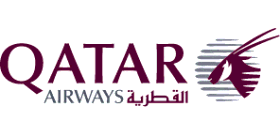 Qatar-Airbus Alliance: A Ripple Effect Across African Skies?
Qatar-Airbus Alliance: A Ripple Effect Across African Skies?
Qatar Airways’ recent cancellation of its Boeing 737 MAX 10 order and reaffirmed commitment to Airbus signals a significant shift in the aviation landscape, one with potential implications for the African travel market. This strategic realignment, driven by evolving fleet requirements and a mended relationship with Airbus, positions the airline for growth and raises questions about the competitive dynamics within Africa.
The airline’s move away from the 737 MAX 10, originally intended for regional routes, reflects a recalibration of its network strategy. Instead, Qatar Airways has doubled down on its Airbus partnership, reinstating a previously canceled order for 50 A321neos. This decision underscores the airline’s confidence in Airbus and its A321neo’s suitability for its evolving operational needs. For African travel agents, this shift could mean altered flight schedules, new route possibilities, and potentially different pricing structures as Qatar Airways optimizes its fleet for efficiency and profitability.
Qatar Airways’ extensive African network, spanning 32 destinations across the continent, makes this strategic shift particularly relevant for African travel professionals. The airline’s growth in Africa is evident in its increased flight frequencies to key destinations like Dar es Salaam, Kilimanjaro, Entebbe, Maputo, and Durban. This expansion demonstrates the airline’s commitment to connecting Africa with its global hub in Doha, offering travelers seamless access to destinations worldwide. Travel agents can leverage this expanded network to curate diverse travel packages and cater to the growing demand for international travel among African clientele.
The airline’s focus on Africa is not merely opportunistic; it’s strategic. Africa represents a significant growth market for Qatar Airways, poised to become its third-largest market by seat capacity. This prioritization of the African market presents opportunities for travel agents to partner with the airline, offering tailored travel solutions and capitalizing on the increasing demand for both regional and international travel.
The reconciliation between Qatar Airways and Airbus, following a highly publicized dispute over A350 surface degradation, has paved the way for this renewed partnership. The settlement, reached in early 2023, not only resolved the legal conflict but also led to the reinstatement of previously canceled orders, including the crucial A321neos. This strengthened relationship signals stability and long-term collaboration, potentially leading to more consistent service and route offerings for African travelers.
The choice of the A321neo for its single-aisle fleet reflects Qatar Airways’ emphasis on fleet commonality and operational efficiency. This aircraft offers a balance of capacity and range, well-suited for both regional and medium-haul routes. The standardization around the A321neo allows for streamlined maintenance, crew training, and operational flexibility, ultimately contributing to cost savings and improved service reliability. These benefits could translate to more competitive fares and enhanced travel experiences for passengers flying to and from Africa.
Qatar Airways’ growing presence in Africa has implications for the competitive landscape. The airline’s expanded network and modern fleet will likely intensify competition with other carriers serving the continent. This competition could lead to improved services, more competitive pricing, and a wider range of travel options for African consumers. Travel agents will need to stay informed about these market dynamics to effectively advise clients and offer the most attractive travel packages.
The airline’s strategic focus on Africa, coupled with its commitment to a modern and efficient fleet, positions it as a major player in the continent’s aviation market. This presents both challenges and opportunities for other airlines operating in Africa. Established carriers will need to adapt their strategies to compete effectively, while smaller airlines may find opportunities to partner with Qatar Airways or focus on niche markets.
For African travel agents, understanding these evolving dynamics is crucial. By staying informed about Qatar Airways’ network expansion, fleet modernization, and competitive positioning, agents can leverage these developments to provide clients with the best possible travel options. This includes understanding the airline’s route network, pricing strategies, and partnerships to offer tailored travel solutions that meet the specific needs of African travelers.
Qatar Airways’ commitment to Africa, reinforced by its strategic partnership with Airbus, signifies a long-term investment in the continent’s aviation sector. This commitment, combined with the airline’s focus on operational efficiency and customer service, is expected to shape the future of air travel in Africa, creating new opportunities for travel agents and enhancing connectivity for travelers across the continent.
